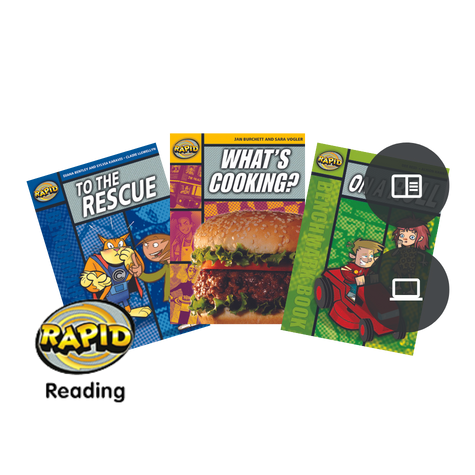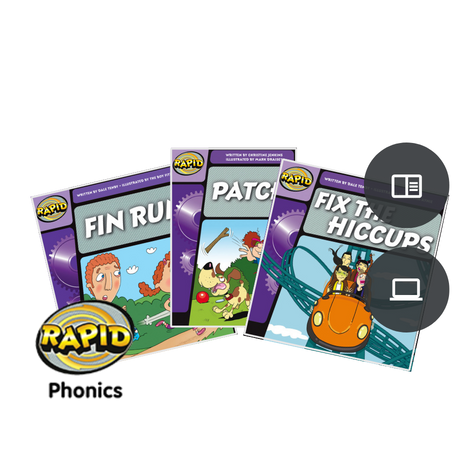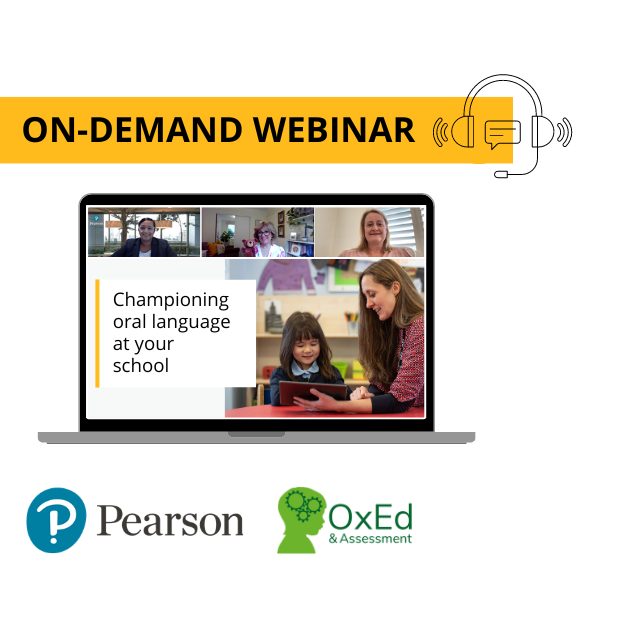Overview
-
Year Levels F–4
-
Curriculum ACT, NSW, NT, QLD, SA, TAS, VIC, WA, NZ
-
Subject Literacy
-
Resource Formats Print, Digital
-
Learning Focus Modelled reading, Independent reading, Take-home reading, Intervention
What it is
Rapid Reading is an intervention solution ideal for:
- students reading below grade level expectations
- students with special education needs.
Rapid Reading Starters is designed for students at the lower reading age of 5–5.5.
Rapid Reading Stages 1–9 is designed for students at the reading ages of 5.5–10 years.
The specially chosen fiction and non-fiction readers have been carefully levelled, are fully decodable and feature topics and themes that engage even the most reluctant of readers.
Why it works
What it includes
Discover how Rapid Reading helps students improve reading ability from school and home.
Rapid Reading
Decodable readers
Rapid Starters and Rapid Reading texts support and challenge struggling readers through:
- high-interest, age-appropriate topics
- decodable fiction and non-fiction readers
- dyslexia-friendly fonts and design
- text features to support with challenging words and provide background information to help comprehension
- quizzes and discussion prompts to reinforce learning and strengthen comprehension.
All Rapid readers are available in print or digitally as eBooks.
Rapid Reading
Benchmark books
Benchmark books for each stage mirror the look and feel of the readers and are designed to be read for assessment after the readers of the same level
Rapid Reading
Teaching resources
Rapid Reading includes a variety of teaching materials to support varied ways of learning. These include:
- comprehensive teaching guides, including reading notes and suggestions for speaking and listening
- detailed notes for teachers and families on the inside front and back covers of each reader
- recommendations for follow-up activities that extend students’ comprehension, spelling and writing skills.
Rapid Reading Digital
A supportive online world
With a single login, students can access books, games and activities from the classroom or home that include:
- a read-to-me function to demonstrate fluent reading and hook students into the text
- audio-only instructions to make activities less intimidating and difficult
- activities designed to help develop decoding and comprehension.
Rapid Reading Digital
Activities geared towards success
Students build confidence away from the classroom by:
- earning rewards as they read and comprehend
- receiving increasingly helpful feedback with each wrong answer
- accessing audio prompts for individual words (up to Stage 6) when they get stuck
- complementing at-home reading with a phonemes and graphemes pronunciation guide.
Rapid Reading Digital
Versatile teaching resources
ActiveLearn Primary’s online platform allows you to:
- easily find and utilise a wealth of teaching material
- utilise in-depth planning, assessment, and reporting tools
- search and allocate readers to students
- track, assess and report on students’ reading progress.
Samples & downloads
Tools to help you unlock the world of Rapid
- Rapid - Closing the Gap in Phonics and Reading Download PDF (9.7MB)
- Rapid - Book Tracker Download XLSX (1.4MB)
- Rapid - Literacy Components Chart Download PDF (5.8MB)
- Rapid Reading - Getting Started Guide Download PDF (686KB)
Discover the difference Rapid made in this independent study from the UK’s National Foundation for Educational Research.
- Helping struggling learners to close the gap Download PDF (1.8MB)
- ActiveLearn Primary - Rapid - Getting Started Guide For Teachers Download PDF (686KB)
- ActiveLearn Primary - Getting Started Guide For Schools Download PDF (720KB)
- ActiveLearn Primary - Getting Started Guide For Parents Download PDF (439KB)
ON-DEMAND WEBINAR
Championing oral language in your school
Using the Science of Learning research to support early oral language developmentJoin the expert panellists to uncover the facts about the impact early oral language difficulties can have on a student’s future. By the end of the webinar, you will understand how your school can positively impact learning by firstly identifying and then addressing early oral language difficulties with greater accuracy and efficiency using the Science of Learning research.
Watch the webinar recording












